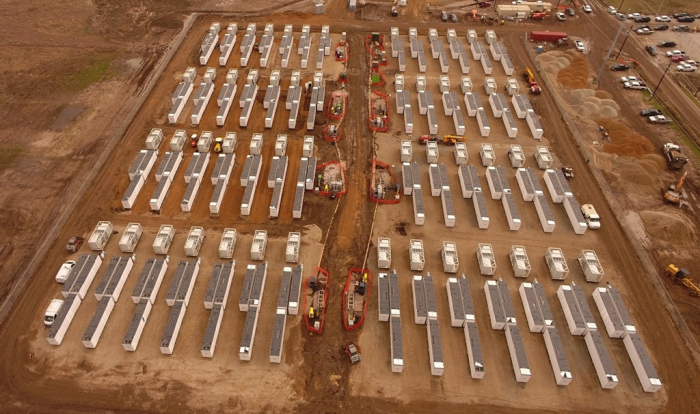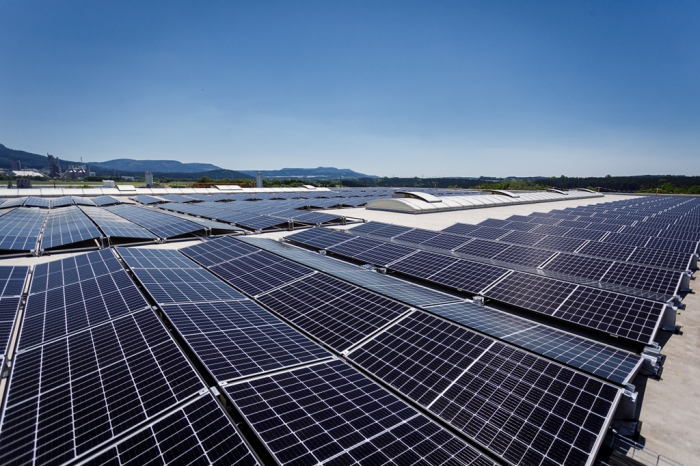Energy
Hanwha Q Cells to sell 7 US battery ESS projects to Spain’s Acciona Energia
Financial terms weren’t known, but if the EPC work is included, the deal could be over $460 million, industry watchers say
By Dec 14, 2022 (Gmt+09:00)
1
Min read
Most Read
LG Chem to sell water filter business to Glenwood PE for $692 million


KT&G eyes overseas M&A after rejecting activist fund's offer


Kyobo Life poised to buy Japan’s SBI Group-owned savings bank


StockX in merger talks with Naver’s online reseller Kream


Meritz backs half of ex-manager’s $210 mn hedge fund



Hanwha Q Cells Co., a unit of South Korea’s chemicals-to-construction conglomerate Hanwha Group, said on Wednesday it has signed a deal to sell seven battery energy storage system (BESS) projects in the US to Spain’s Acciona Energia.
Under the agreement, Acciona, a leading renewable energy company, will acquire the battery ESS project in Cunningham, the largest of its kind in Texas, due online in the first quarter of 2023.
The deal also includes Acciona’s acquisition of six other BESS projects currently under development.
The 380 megawatt-hour (MWh) Cunningham facility, located 34 km from Dallas, will be the largest operating battery energy storage project on the Texas grid upon commissioning next year.
Together with the six other ESS projects, the total combined capacity will reach 2.4 gigawatt hours (GWh), enough to charge the electricity used by about 1 million people a day, according to Hanwha.
Financial terms of the deal weren’t known, but Hanwha said the agreement marks its largest-ever energy project sales in value.

Hanwha Q Cells, owned by Hanwha Solutions Corp., is also considering engineering, procurement and construction (EPC) work for the six projects under development. If the EPC work is included, the total value of the deal could reach 600 billion won ($463 million), industry officials said.
Battery energy storage systems allow excess energy generated from clean, intermittent sources to be captured and released during demand peaks or system disturbances, allowing energy to be injected into the grid upon demand. These systems also contribute to reinforcing grid stability and improving energy security.
According to research firm Wood Mackenzie, the cumulative ESS installations worldwide will rise to 1 terawatt hours (TWh) by 2031 from 28 GWh in 2021. In the US alone, ESS installations would reach 600 GWh by 2031.
"ESS is a core business for us. We aim to become a global leader," said Lee Koo-yung, chief executive of Hanwha Q Cells.
Write to Jae-Fu Kim at hu@hankyung.com
In-Soo Nam edited this article.
More to Read
-
 Tech, Media & TelecomSamsung, Hanwha Q Cells to offer IoT home energy solutions in US, EU
Tech, Media & TelecomSamsung, Hanwha Q Cells to offer IoT home energy solutions in US, EUJul 05, 2021 (Gmt+09:00)
2 Min read -
 Hanwha Q Cells secures 315MW solar power, energy storage project in Portugal
Hanwha Q Cells secures 315MW solar power, energy storage project in PortugalAug 28, 2020 (Gmt+09:00)
1 Min read -
 EnergyHanwha Q CELLS to join EU project for cutting-edge solar batteries
EnergyHanwha Q CELLS to join EU project for cutting-edge solar batteriesNov 24, 2022 (Gmt+09:00)
1 Min read
Comment 0
LOG IN


